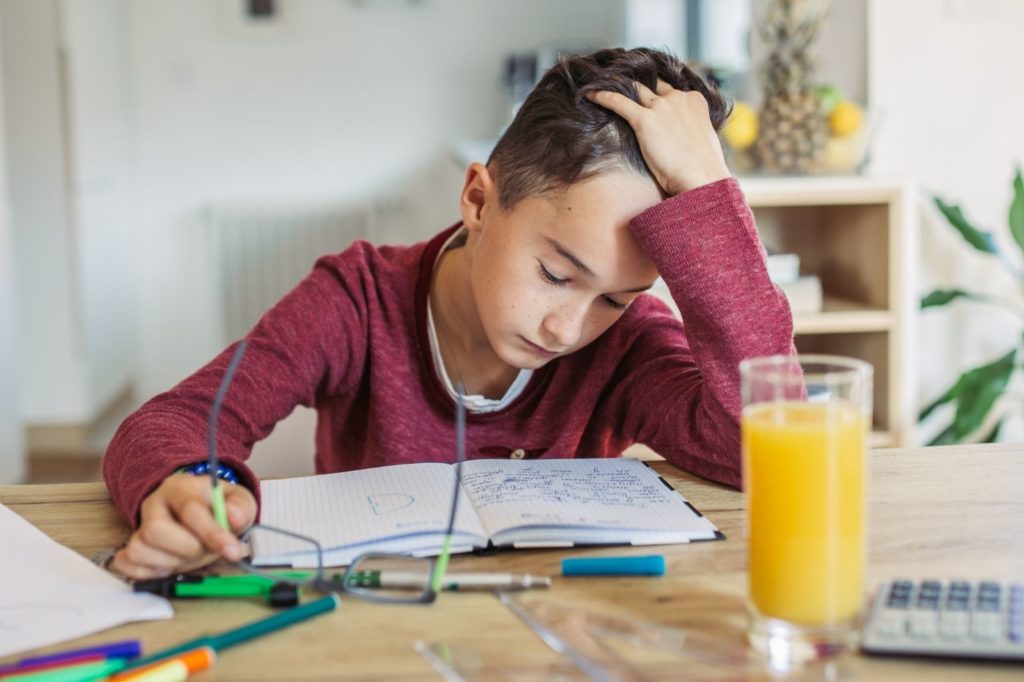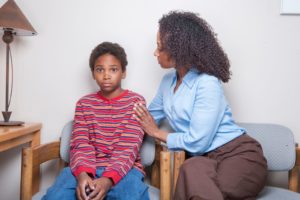Your child has always been very active but lately you’ve started to wonder if there is more to it than them just being a “bundle of energy”.
You’ve heard that the inability to sit still and being fidgety could be a sign of Attention Deficit Hyperactivity Disorder (ADHD). Or maybe they’re nervous and it could be an anxiety disorder. Perhaps your child has been diagnosed with ADHD but some of his or her symptoms don’t seem to fit with the traditional symptoms of ADHD and you’re wondering if they also have anxiety. On the other hand, your child may have been already diagnosed with an anxiety disorder but you’ve noticed additional symptoms and you think it might be ADHD. What’s actually going on with your child? Which diagnosis is most appropriate? Is it even possible to have both ADHD and anxiety? Because some of the diagnostic criteria for ADHD and anxiety can seem similar, the differences between the two diagnoses can be very confusing.
To further complicate matters, a child can be diagnosed with both ADHD and an anxiety disorder. In fact, researchers have found that about 35% of children diagnosed with ADHD are also diagnosed with an anxiety disorder. Studies have also shown that children with ADHD are more likely to be diagnosed with also having anxiety than children who do not have ADHD. Because there is the possibility that your child may have more than one diagnosis, it’s important to know the how anxiety and ADHD differ from one another.
The symptoms of anxiety in children include excessive worry that is difficult to control, feeling restless, easily fatigued, difficulty concentrating, mind going black, muscle tension, and trouble sleeping. Often children with anxiety feel like they are constantly worrying and have trouble turning their worry off. Their agitation, restlessness, and inability to concentrate stems from their excessive and constant worry. The anxiety comes first and the trouble focusing is secondary and because of the worry. When your mind is locked in a constant loop of worry, it’s hard to focus which could be mistaken for ADHD symptoms.
The symptoms of ADHD in children include inattention to detail, difficulty sustaining attention and staying “on task”, loses things frequently, is easily distracted, forgetfulness, feeling restless, talks excessively, has difficulty waiting their turn, and interrupts others. Often children with ADHD will worry about completing assignments or doing well on the test because of their trouble concentrating and staying on task. The difficulty concentrating and sitting still comes first while the worry is secondary or is a result of the ADHD symptoms and could be mistaken for symptoms of anxiety.
So what is the difference? If a child expresses feeling nervous or unsure of their ability to perform certain tasks because of their ADHD, those nervous feelings are likely part of their ADHD. If, instead, they have a pervasive feeling of fear that isn’t linked to a specific experience, it is more likely a sign of anxiety. It can be hard to zero in on exactly where your child’s fears originate but a healthcare professional can help discern the fear’s origin.
If your child does have ADHD and anxiety, what are your treatment options? Dr. Dodson recommends in his article for ADDitude using research-proven treatment methods for both disorders and to start with treating ADHD first. ADHD is most often treated through medication. Anxiety is usually best treated through a combination of medication and Cognitive Behavioral Therapy. Your healthcare provider will help you determine which medications are needed and can help you find a competent therapist. With the right treatment, your child will feel empowered and supported.
The good news is that you do not have to wrestle with these questions alone. Make a list of the symptoms you’ve observed in your child (you can also check out these free online screening tools) and bring the list when you meet with your healthcare professional. He or she will likely use additional screening tools and assessments to help make an accurate diagnosis for your child. Once your child receives a diagnosis, your healthcare provider will discuss treatment options with you. An accurate diagnosis means that your child will be able to have access to right treatment options to ensure that their symptoms have a minimal impact on their day to day lives.










